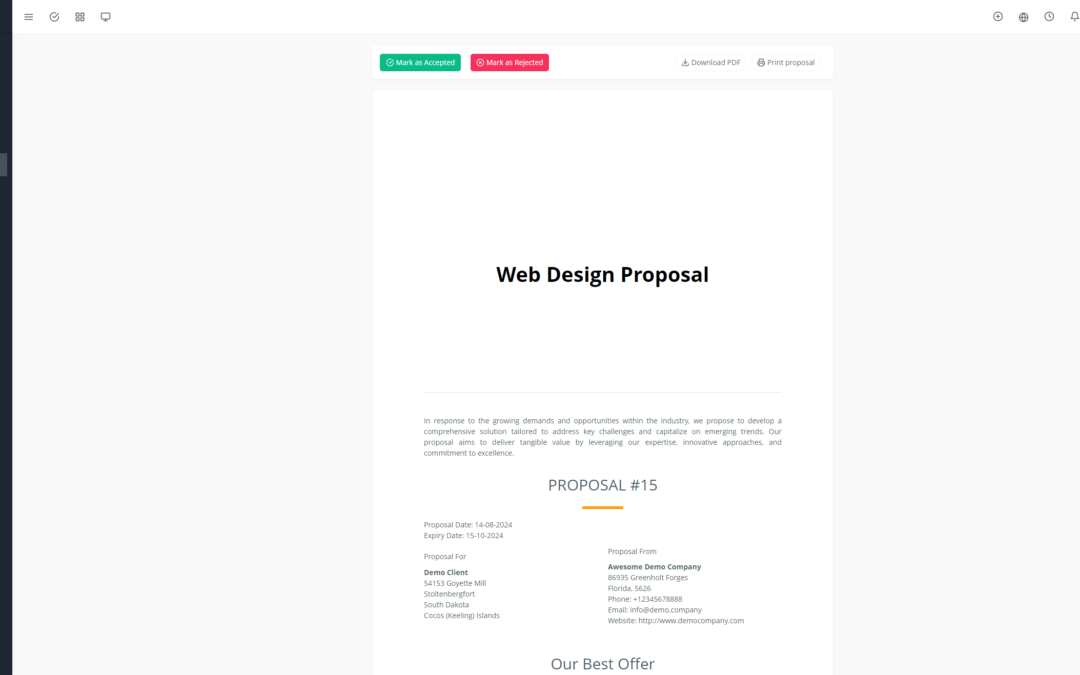In today’s competitive real estate market, personalization is key to success. To stand out and build loyal clients, real estate agencies need to adopt a customer-centric approach and offer unique experiences. That’s where CRM comes in.
CRM and Personalization in Real Estate: 🔑
A CRM (Customer Relationship Management) is a powerful tool that allows you to centralize and organize information about your clients, as well as personalize your interactions with them.
How can CRM improve the personalization of customer experiences?
By providing you with a comprehensive overview of each client, CRM allows you to:
Understand their needs and motivations: Determine their preferences for property type, budget, location, etc.
Identify cross-selling and loyalty opportunities: Offer complementary services that match their needs.
Personalize your communications: Adapt the content of your emails, SMS, and calls to each client.
What essential customer data is needed for effective personalization?
Demographic information: Age, profession, family status
Interaction history: Phone calls, emails, website visits
Real estate preferences: Property types, neighborhoods, budgets
Specific needs: Search time frame, financing requirements
Examples of Personalization in Real Estate: 💡
Here are some concrete examples of personalization that can be implemented through a CRM:
Sending targeted and personalized newsletters: Based on the client’s real estate preferences, you can send them newsletters containing exclusive listings and relevant information.
Recommending real estate listings based on preferences: By analyzing customer data, the CRM can suggest listings that match their search criteria.
Personalized notifications on available properties: The CRM can send automatic notifications to clients as soon as a property meeting their criteria goes on sale.
Benefits of Customer Personalization: 🚀
Personalizing customer experiences offers numerous benefits for real estate agencies:
Increased conversion rate: Clients feel understood and are more likely to close a deal.
Improved customer satisfaction: Clients appreciate the personalized service and feel valued.
Client loyalty: Satisfied clients are more likely to come back to you and recommend your services.
Better customer relationship management: You can build strong and lasting relationships with your clients.
CRM Features for Personalization: ⚙️
Modern CRMs integrate specific features that facilitate the personalization of customer experiences:
Customer segmentation: Categorize your clients into groups based on their characteristics and needs.
Marketing campaign automation: Create personalized and automated marketing campaigns for each customer segment.
Customer interaction management: Track your interaction history with each client and adapt your communication based on their needs.
Choosing the Right CRM for Real Estate: 🔍
When choosing a CRM, it’s important to consider the following criteria:
Integration with other tools and applications: Ensure the CRM can integrate with your marketing, property management, and communication tools.
Advanced personalization features: The CRM should offer segmentation, automation, and communication personalization features.
Ease of use and access: Choose a CRM that’s easy to use and accessible to everyone on your team.
Creating Unique Customer Experiences: 🌟
Beyond CRM, here are a few tips for creating unique customer experiences in real estate:
Understand client needs and motivations: Take the time to talk to your clients and understand their goals, constraints, and aspirations.
Provide personalized and responsive customer service: Be available to answer questions and requests from your clients, and provide regular follow-up.
Give personalized advice and information: Use your expertise to advise your clients and provide them with relevant and personalized information.
Examples of Real Estate Companies Using CRMs: 🏢
Many real estate companies have already adopted CRMs to personalize their customer experiences. You can learn from their testimonials and case studies to implement your own strategy.
Tips for Implementing an Effective CRM Strategy: 🎯
Define goals and key performance indicators: Determine what you want to achieve with your CRM and set indicators to measure your progress.
Implement a data tracking and analysis system: Regularly analyze your CRM data to identify trends and areas for improvement.
Continue learning and adapting the strategy based on results: The real estate market is constantly evolving. Adapt your CRM strategy based on the latest trends and technologies.
The Future of CRM and Personalization in Real Estate: 🔮
Artificial intelligence and machine learning will play an increasingly important role in personalizing customer experiences. New technologies and trends will emerge to improve communication, data analysis, and customer relationship management.
Conclusion: 🏁
Personalization is essential for success in real estate. CRM is a powerful tool that helps you achieve this goal. By investing in a CRM and personalizing customer experiences, you give yourself every chance to build loyal clients and grow your business.
Don’t hesitate to get started and make personalization your competitive advantage! 💪

